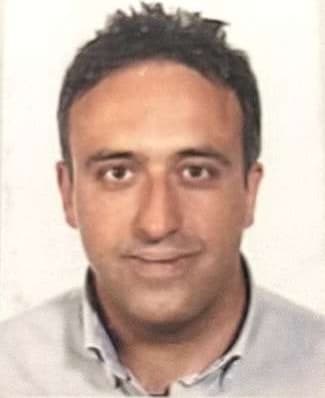Studying at the University of Verona
Here you can find information on the organisational aspects of the Programme, lecture timetables, learning activities and useful contact details for your time at the University, from enrolment to graduation.
Academic calendar
The academic calendar shows the deadlines and scheduled events that are relevant to students, teaching and technical-administrative staff of the University. Public holidays and University closures are also indicated. The academic year normally begins on 1 October each year and ends on 30 September of the following year.
Course calendar
The Academic Calendar sets out the degree programme lecture and exam timetables, as well as the relevant university closure dates..
| Period | From | To |
|---|---|---|
| I semestre (Lingue e letterature straniere) | Sep 27, 2021 | Jan 8, 2022 |
| Annuale (Lingue e letterature straniere) | Sep 27, 2021 | May 28, 2022 |
| II semestre (Lingue e letterature straniere) | Feb 14, 2022 | May 28, 2022 |
| Session | From | To |
|---|---|---|
| ESAMI LINGUE - sessione invernale | Jan 10, 2022 | Feb 12, 2022 |
| ESAMI LINGUE - sessione estiva | May 30, 2022 | Jul 23, 2022 |
| ESAMI LINGUE - sessione autunnale | Aug 29, 2022 | Sep 24, 2022 |
| Session | From | To |
|---|---|---|
| LAUREE LINGUE - sessione autunnale (a.a. 2020-2021) | Nov 8, 2021 | Nov 13, 2021 |
| LAUREE LINGUE - sessione straordinaria (a.a. 2020-2021) | Mar 28, 2022 | Apr 2, 2022 |
| LAUREE LINGUE - sessione estiva (a.a. 2021-2022) | Jul 11, 2022 | Jul 16, 2022 |
Exam calendar
Exam dates and rounds are managed by the relevant Foreign Languages and Literatures Teaching and Student Services Unit.
To view all the exam sessions available, please use the Exam dashboard on ESSE3.
If you forgot your login details or have problems logging in, please contact the relevant IT HelpDesk, or check the login details recovery web page.
Academic staff
 silvia.cavalieri@univr.it
silvia.cavalieri@univr.it
 riccardo.cella@univr.it
riccardo.cella@univr.it
 elisa.dallarosa@univr.it
elisa.dallarosa@univr.it
 jacopo.galavotti@univr.it
jacopo.galavotti@univr.it
 sara.giovine@univr.it
sara.giovine@univr.it
 dunia.houranimartin@univr.it
dunia.houranimartin@univr.it
Morbiato Giacomo
 giacomo.morbiato@univr.it
giacomo.morbiato@univr.it
 chunye.niu@univr.it
chunye.niu@univr.it
 sara.paolini@univr.it
sara.paolini@univr.it
 tania.triberio@univr.it
tania.triberio@univr.it
Study Plan
The Study Plan includes all modules, teaching and learning activities that each student will need to undertake during their time at the University.
Please select your Study Plan based on your enrollment year.
1° Year
| Modules | Credits | TAF | SSD |
|---|
1ST FOREIGN LANGUAGE2ND FOREIGN LANGUAGE1ST FOREIGN LITERATURE AND CULTUREGerman literature and culture 1
1ST FOREIGN LITERATURE AND CULTUREGerman literature and culture 1
2° Year activated in the A.Y. 2022/2023
| Modules | Credits | TAF | SSD |
|---|
1ST FOREIGN LANGUAGE2ND FOREIGN LANGUAGE1ST FOREIGN LITERATURE AND CULTURE OR A RELATED COURSEEnglish literature and culture 2
French literature and culture 2
German literature and culture 2
Spanish literature and culture 2
2ND FOREIGN LITERATURE AND CULTURE OR A RELATED COURSEEnglish literature and culture 2
French literature and culture 2
German literature and culture 2
Spanish literature and culture 2
Geography of communication and international trade
Italian literature and culture
Modern and Contemporary Economic History
Theory and Techniques of communication
3° Year activated in the A.Y. 2023/2024
| Modules | Credits | TAF | SSD |
|---|
1ST FOREIGN LANGUAGE2ND FOREIGN LANGUAGEComparative and European Public law
Principles of international marketing
| Modules | Credits | TAF | SSD |
|---|
1ST FOREIGN LANGUAGE2ND FOREIGN LANGUAGE1ST FOREIGN LITERATURE AND CULTUREGerman literature and culture 1
1ST FOREIGN LITERATURE AND CULTUREGerman literature and culture 1
| Modules | Credits | TAF | SSD |
|---|
1ST FOREIGN LANGUAGE2ND FOREIGN LANGUAGE1ST FOREIGN LITERATURE AND CULTURE OR A RELATED COURSEEnglish literature and culture 2
French literature and culture 2
German literature and culture 2
Spanish literature and culture 2
2ND FOREIGN LITERATURE AND CULTURE OR A RELATED COURSEEnglish literature and culture 2
French literature and culture 2
German literature and culture 2
Spanish literature and culture 2
Geography of communication and international trade
Italian literature and culture
Modern and Contemporary Economic History
Theory and Techniques of communication
| Modules | Credits | TAF | SSD |
|---|
1ST FOREIGN LANGUAGE2ND FOREIGN LANGUAGEComparative and European Public law
Principles of international marketing
| Modules | Credits | TAF | SSD |
|---|
Legend | Type of training activity (TTA)
TAF (Type of Educational Activity) All courses and activities are classified into different types of educational activities, indicated by a letter.
French Language 1 (2021/2022)
Teaching code
4S02550
Teacher
Coordinator
Credits
9
Also offered in courses:
- French Language 1 of the course Bachelor's degree in Foreign Languages and Literatures
- French Language 1 of the course Bachelor's degree in Languages and literatures for publishing and digital media
Language
Italian
Scientific Disciplinary Sector (SSD)
L-LIN/04 - LANGUAGE AND TRANSLATION – FRENCH
Period
I semestre (Lingue e letterature straniere) dal Sep 27, 2021 al Jan 8, 2022.
Learning outcomes
By the end of the course, students will be able to: * show a good grasp of phonetics and phonology; * describe the French phonetic system and its peculiarities; * identify and comment on salient aspects of oral French, based on concrete utterances; * carry out an accurate phonetic transcription (A.P.I.) of words and short sentences from standard French; * show that they have reached linguistic skills in French corresponding to B1 level of CEFR.
Program
Introduction to French phonetics and phonology.
The following topics will be dealt with:
• Oral and written codes in contemporary French
• The notions of phones and phonemes
• The International Phonetic Alphabet (I.P.A.)
• The organs of phonation
• Articulatory features of French vowels and consonants
• French/Italian phonetic systems: a contrastive approach
• The main phonetic laws: accentuation, syllabification, syllabic division and structure, complementary distribution
• Orthoepic issues: e caduc and liaison
• Phonetic transcription of words and short sentences from French
• Some phonological notions: oppositive values and distinctive features
• Co-articulation issues: physiological and psychological aspects
• Accentuation, pauses and rhythm in utterances
• Intonation: syntactical and discursive aspects
• Variation in oral French: individual (idiolects), diatopical (regiolects) and diastratical (sociolects) aspects
The course will be given in Italian.
The course will include complementary activities: 12 hours of class work and 24 hours of tutorial. The class work will largely consist of exercises in phonetic transcription. The hours of tutorials will be devoted to responding to students’ questions on the syllabus to be prepared for the examination.
Bibliography
Required reading:
Monique Léon – Pierre Léon, La prononciation du français, 2e édition, Paris, Armand Colin, 2015 (or previous editions) (available at Frinzi Library).
Suggestions for further reading:
Pierre Léon, Phonétisme et prononciations du français, Paris, Nathan, 1992 (available at the CLA).
Françoise Gadet, Le français ordinaire, Paris, Armand Colin, 1989 (capitoli 4-8) (available at Frinzi Library).
Bernard Tranel, « Les sons du français », in M. Yaguello (ed. by), Le Grand Livre de la Langue française, Paris, Seuil, 2003, p. 259-315.
***
Introduction à la phonétique et à la phonologie du français.
Les thèmes suivants seront abordés:
• Code oral et code écrit dans le français contemporain
• Les notions de phone et de phonème
• L’Alphabet Phonétique International (A.P.I.)
• Les organes de la phonation
• Les traits articulatoires des voyelles et des consonnes en français
• Les principales lois phonétiques: accentuation, syllabation, division et structure syllabique, distribution complémentaire
• Problèmes d’orthoépie : l’e caduc et la liaison
• Transcription phonétique de mots et de courtes phrases du français
• Notions de phonologie : valeurs oppositives et traits distinctifs
• Phénomènes de coarticulation : aspects physiologiques et psychologiques
• L’accentuation, les pauses et le rythme dans les énoncés
• L’intonation : aspects syntaxiques et discursifs
• La variation en français oral : aspects individuels (idiolectes), diatopiques (régiolectes) et diastratiques (sociolectes)
Le cours sera dispensé en langue italienne.
Le cours intégrera des activités complémentaires; celles-ci comprendront 12 heures en salle de cours et 24 heures de tutorat. Les heures en salle de cours seront consacrées essentiellement à des exercices de transcription phonétique. Les heures de tutorat sont à la disposition des étudiants pour des éclaircissements sur des points spécifiques du programme de l’examen. Le calendrier sera publié sur Moodle et sur la page web du professeur.
Bibliographie
Texte de référence :
Monique Léon – Pierre Léon, La prononciation du français, 2e édition, Paris, Armand Colin, 2015 (ou éditions précédentes) (disponible à la Bibliothèque Frinzi).
Textes conseillés pour approfondir :
Françoise Gadet, Le français ordinaire, Paris, Armand Colin, 1989 (chapitres 4-8) (disponible à la Bibliothèque Frinzi).
Pierre Léon, Phonétisme et prononciations du français, Paris, Nathan, 1992 (disponible au CLA).
Bernard Tranel, « Les sons du français », in M. Yaguello (a cura di), Le Grand Livre de la Langue française, Paris, Seuil, 2003, p. 259-315.
Bibliography
Examination Methods
The exam will be in written form and it will be marked out of 30. The test aims at ascertaining that the notions discussed during the course have been acquired. The exam will be divided into a theoretical part (with multiple-choice questions, all in Italian) and a phonetic transcription part (A.P.I.) of short sentences from French.
The exam will be the same for all the students, whether they followed the course or not. In all cases, attendance at all classes and complementary activities is strongly recommended, in particular to acquire skills in phonetic transcription.
Language skills: French B2.
Language skills will be validated with a certificate delivered by CLA (Centro Linguistico d'Ateneo) or by an organization authorized by MUR.
*****
L’épreuve d’examen sera écrite et sera notée sur trente. L’épreuve vise à vérifier l’acquisition des notions présentées pendant le cours ; elle se compose d’une partie théorique (avec des questions à choix multiple, toutes en langue italienne) et une partie de transcription phonétique (A.P.I.) de courtes phrases du français.
L’épreuve sera la même pour ceux qui suivent et ceux qui ne suivent pas le cours. Toutefois, la présence en cours et aux activités « complémentaires » est fortement conseillée, surtout pour ce qui concerne la partie de transcription phonétique.
Niveau de compétence requis : français B1.
Le niveau de compétence sera validé sur la base des attestations du CLA (Centro Linguistico di Ateneo) ou d'une organisation reconnue par le Ministère italien de l’Université et la Recherche (MUR).
Type D and Type F activities
Nei piani didattici di ciascun Corso di studio è previsto l’obbligo di conseguire un certo numero di CFU di tipologia D e di tipologia F.
CFU D (attività a scelta dello studente)
I CFU D possono essere acquisiti mediante:
- insegnamenti non obbligatori nel proprio piano didattico (previa approvazione del Presidente del Collegio didattico per insegnamenti non selezionabili in autonomia)
- attività accreditate dal Collegio didattico
- competenze linguistiche (diverse o ulteriori) rispetto a quelle obbligatorie
- tirocini o stage
- TALC (competenze trasversali).
Competenze trasversali TALC
Nota bene: i corsi TALC sono riconosciuti solo come CFU D.
Il numero di CFU D va calcolato complessivamente sull’intero triennio/biennio e non è legato all'annualità.
CFU F
I CFU F sono solitamente relativi ad abilità informatiche, competenze linguistiche, stage e tirocini e ulteriori attività formative accreditate in questa tipologia dal Collegio Didattico.
Nel corso di laurea in Lingue e culture per il turismo e il commercio internazionale sono previste le seguenti tipologie:
- 3 CFU per terza lingua (livello B1)
- 3 CFU per informatica
- 6 CFU per stage obbligatorio.
Le competenze informatiche possono essere acquisite attraverso:
- il superamento della prova pratica presso le aule informatiche di Ateneo,
- la frequenza dei corsi attivati da scuole e centri accreditati dall’AICA (Associazione Italiana per l’Informatica e il Calcolo Automatico) o riconosciuti dalla Provincia e dalla Regione e superamento della relativa prova finale. Le domande per il riconoscimento delle competenze informatiche acquisite precedentemente vengono esaminate dalla Commissione per il riconoscimento delle Competenze Informatiche.
Le attività di stage sono finalizzate a far acquisire allo studente una conoscenza diretta in settori di particolare utilità per l’inserimento nel mondo del lavoro e per l’acquisizione di abilità specifiche d’interesse professionale.
Documents and news
-
 Domanda di riconoscimento crediti su certificazioni esterne di abilità-competenze informatiche
(pdf, it, 524 KB, 16/06/21)
Domanda di riconoscimento crediti su certificazioni esterne di abilità-competenze informatiche
(pdf, it, 524 KB, 16/06/21)
| years | Modules | TAF | Teacher |
|---|---|---|---|
| 1° 2° 3° | Introduction to robotics for humanities students | D |
Paolo Fiorini
(Coordinator)
|
To discover all the teaching activities accredited by the foreign teaching college click here
Career prospects
Module/Programme news
News for students
There you will find information, resources and services useful during your time at the University (Student’s exam record, your study plan on ESSE3, Distance Learning courses, university email account, office forms, administrative procedures, etc.). You can log into MyUnivr with your GIA login details: only in this way will you be able to receive notification of all the notices from your teachers and your secretariat via email and also via the Univr app.
Student login and resources
Gestione carriere
Attendance and location
Attendance is not mandatory.
More detailed information on attendance requirements, please refer to the “Regolamento del corso di studio”, available under the “Regolamenti” section in “Il Corso”. While the Student Handbook does not require mandatory attendance, it is recommended to confirm specific attendance policies with your professors for each course, lab, or practical training.
Part time enrolment is an option. For more information, visit the Possibilità di iscrizione Part time.
Classrooms and exam locations are:
Classes and exams are held at the following locations:
- Polo Zanotto (close to the Foreign Languages and Literatures building)>
- Polo Santa Marta
Assegnazione tutore
Attività accreditate D/F
Calendario didattico dettagliato
Cambio lingua curriculare
Competenze informatiche
Competenze linguistiche (prima e seconda lingua)
Competenze linguistiche in triennale (terza lingua CFU F)
Compilazione del piano didattico
Corso di Lingua catalana a.a. 2024-25
Corso di Lingua portoghese
Erasmus+ e altre esperienze all'estero
Linguistic training CLA
Presentazione dei corsi di studio e Open day
Graduation
Saperi minimi
Internships and apprenticeships - Foreign Languages and Literatures
Internships and apprenticeships
A mandatory internship period (6 CFUs) within business organizations is included in the study plan for the Bachelor’s degree in Languages and Cultures for Tourism and International Commerce (L12).
The internship is designed to provide students with practical experience in areas relevant to their future professional careers and to help them acquire specific professional skills.
Internship activities are conducted under the direct supervision of an individual lecturer and take place at professional firms, public administration offices, and companies accredited by the University of Verona.
Credits earned through internship activities will be awarded in accordance with the detailed provisions of the current “Regolamento d’Ateneo per il riconoscimento dei crediti maturati negli stage universitari” (University Regulations for the Recognition of Credits Accrued in University Internships).
- Information for prospective students about internships can be found at Stage e tirocini.
- Information for enrolled students is available on MyUnivr - come fare per - stage e tirocini.
- Information for companies regarding internships can be found at Stage e tirocini per azienze.
For more details, please visit the following link https://www.univr.it/it/i-nostri-servizi/gestione-carriere-studenti-lingue-e-letterature-straniere/stage-e-tirocini-lingue-e-letterature-straniere

 045-8028855
045-8028855
























































